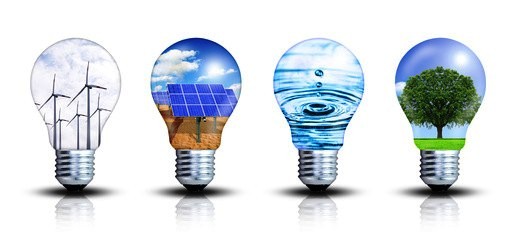Advantages of Electricity
Electricity is a fundamental aspect of modern life, revolutionizing the way we live, work, and communicate. In this article, we will explore the numerous advantages of electricity and how it has transformed various aspects of our daily lives.
Enhanced Efficiency
One of the key advantages of electricity is its ability to enhance efficiency in various sectors. In industries, electricity powers machinery and equipment, resulting in higher productivity and output. Additionally, electric appliances such as refrigerators, washing machines, and dishwashers have made household chores significantly easier and less time-consuming.
Improved Communication
Electricity has revolutionized the way we communicate. With the advent of electricity, telecommunication systems have flourished, enabling rapid and efficient transmission of information across vast distances. From telephones to the internet, electricity has paved the way for instant communication, fostering global connectivity and bridging gaps between people.
Convenient Lighting
Before the widespread use of electricity, lighting was limited to candles, oil lamps, and gaslights. The introduction of electricity brought about convenient and reliable lighting solutions. Electric light bulbs provide bright and consistent illumination, enhancing visibility and safety in homes, offices, and public spaces. Furthermore, advancements in lighting technology, such as LED bulbs, have led to energy-efficient lighting options, reducing electricity consumption.
Powering Transportation
Electricity has also played a significant role in transforming transportation. The development of electric vehicles (EVs) has provided a cleaner and more sustainable alternative to traditional fossil fuel-powered cars. EVs are not only environmentally friendly but also offer reduced operating costs and quieter operation. With the expansion of charging infrastructure, electric vehicles are becoming more accessible and contributing to a greener future.
Renewable Energy Sources
Another advantage of electricity is its compatibility with renewable energy sources. Renewable energy, such as solar and wind power, can be harnessed to generate electricity without depleting natural resources or emitting harmful pollutants. The integration of renewable energy into the electricity grid promotes sustainability and reduces our dependence on fossil fuels, helping combat climate change.
Increased Productivity
Electricity has significantly increased productivity in various sectors. In agriculture, electric-powered machinery has revolutionized farming practices, enabling efficient irrigation, crop harvesting, and food processing. In healthcare, electricity powers medical equipment and devices, enabling accurate diagnosis, advanced treatments, and life-saving procedures. Moreover, electricity has facilitated automation in industries, streamlining manufacturing processes and increasing overall productivity.

The advantages of electricity are vast and far-reaching. From enhancing efficiency and communication to powering transportation and promoting renewable energy, electricity has transformed our lives in numerous ways. As we continue to harness its potential, electricity will undoubtedly remain a cornerstone of progress and innovation in the modern world.
Frequently Asked Questions about the Advantages of Electricity
1. What are the advantages of electricity?
Electricity offers numerous advantages such as:
Convenience: It powers our homes, offices, and industries, making our lives easier.
Efficiency: Electric appliances are generally more efficient than their non-electric counterparts.
Flexibility: Electricity can be generated from various sources, including renewable energy.
Instantaneous Power: Electricity provides immediate power when needed.
2. How does electricity benefit the economy?
Electricity plays a vital role in economic development through:
Industrial Growth: Electricity powers factories and industries, enabling production and economic growth.
Job Creation: The electricity sector creates employment opportunities in generation, distribution, and maintenance.
Technological Advancement: Electricity drives innovation and the development of new technologies.
3. What environmental advantages does electricity offer?
Electricity offers several environmental benefits, including:
Reduced Emissions: Electric power generation produces fewer greenhouse gas emissions compared to fossil fuels.
Renewable Energy Integration: Electricity can be generated from renewable sources, reducing reliance on fossil fuels.
Improved Air Quality: Electric vehicles and appliances produce zero emissions at the point of use.
4. How does electricity improve quality of life?
Electricity enhances our quality of life by:
Lighting: Electricity provides illumination, making our surroundings safer and more comfortable.
Communication: Electricity powers devices like phones and computers, enabling seamless communication.
Healthcare: Electricity is essential for medical equipment and facilities, improving healthcare services.
Education: Electricity powers schools and educational tools, facilitating learning opportunities.
5. Are there any cost advantages associated with electricity?
Yes, electricity offers cost advantages such as:
Efficiency: Electric appliances are often more energy-efficient, resulting in lower utility bills.
Long-Term Savings: Utilizing renewable energy sources can lead to reduced energy costs in the long run.
Job Creation: The electricity sector creates employment, contributing to economic growth and income generation.
6. How does electricity contribute to technological advancements?
Electricity is a catalyst for technological advancements by:
Powering Research: Electricity enables scientific research and experimentation.
Driving Innovation: Electric power fosters the development of new technologies and inventions.
Supporting Communication: Electricity powers the internet and communication networks, facilitating information exchange.
7. Can you explain the advantages of electric vehicles?
Electric vehicles offer several advantages, including:
Reduced Emissions: Electric vehicles produce zero tailpipe emissions, reducing air pollution.
Energy Efficiency: Electric motors are more efficient than internal combustion engines, resulting in lower energy consumption.
Lower Operating Costs: Electric vehicles have lower fuel and maintenance costs compared to traditional vehicles.
8. How does electricity contribute to sustainable development?
Electricity promotes sustainable development by:
Renewable Energy Integration: Electricity can be generated from renewable sources, reducing reliance on finite resources.
Energy Access: Electricity provides access to modern energy services, improving living conditions in underserved areas.
Environmental Protection: Electric power generation produces fewer harmful emissions, preserving ecosystems.




